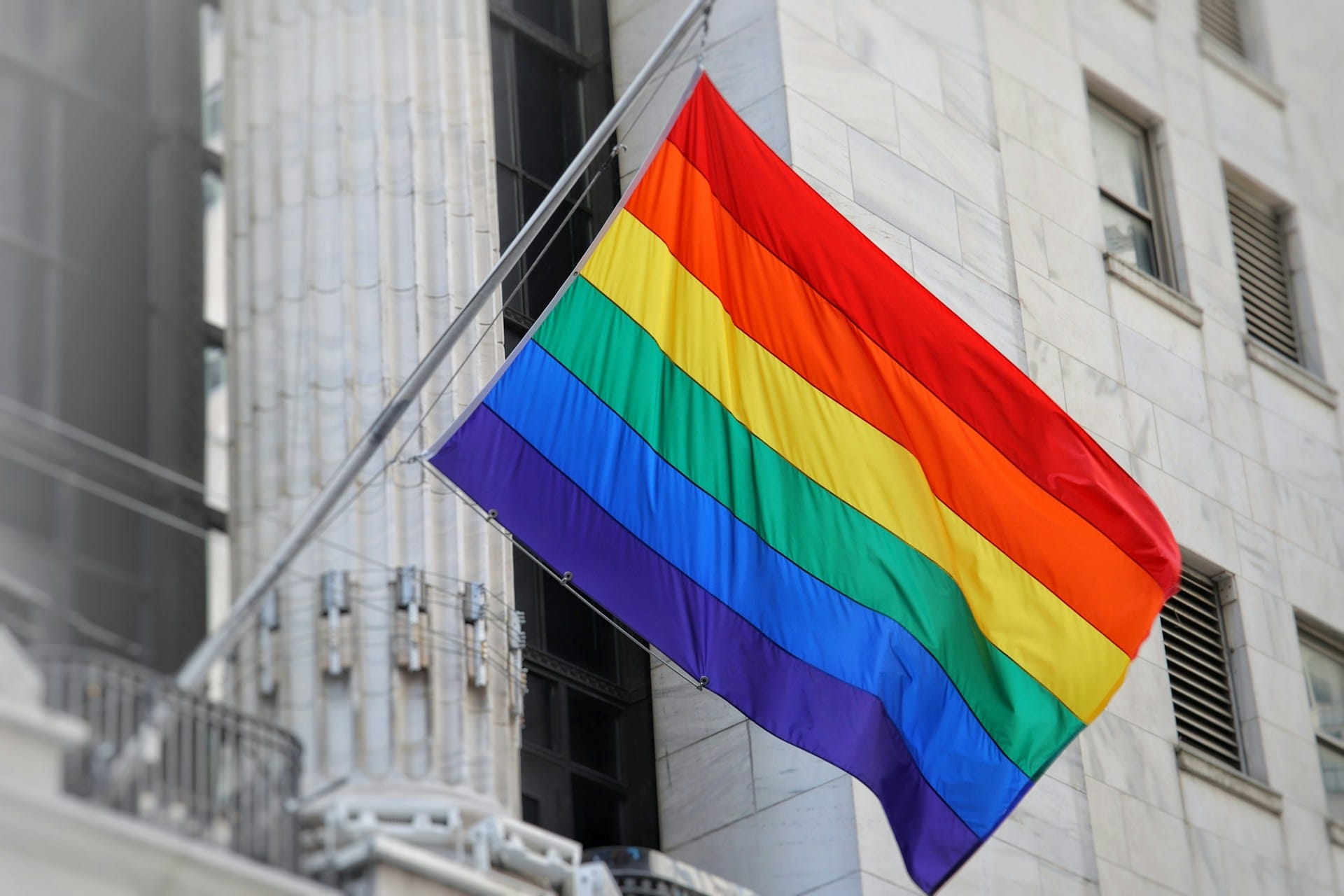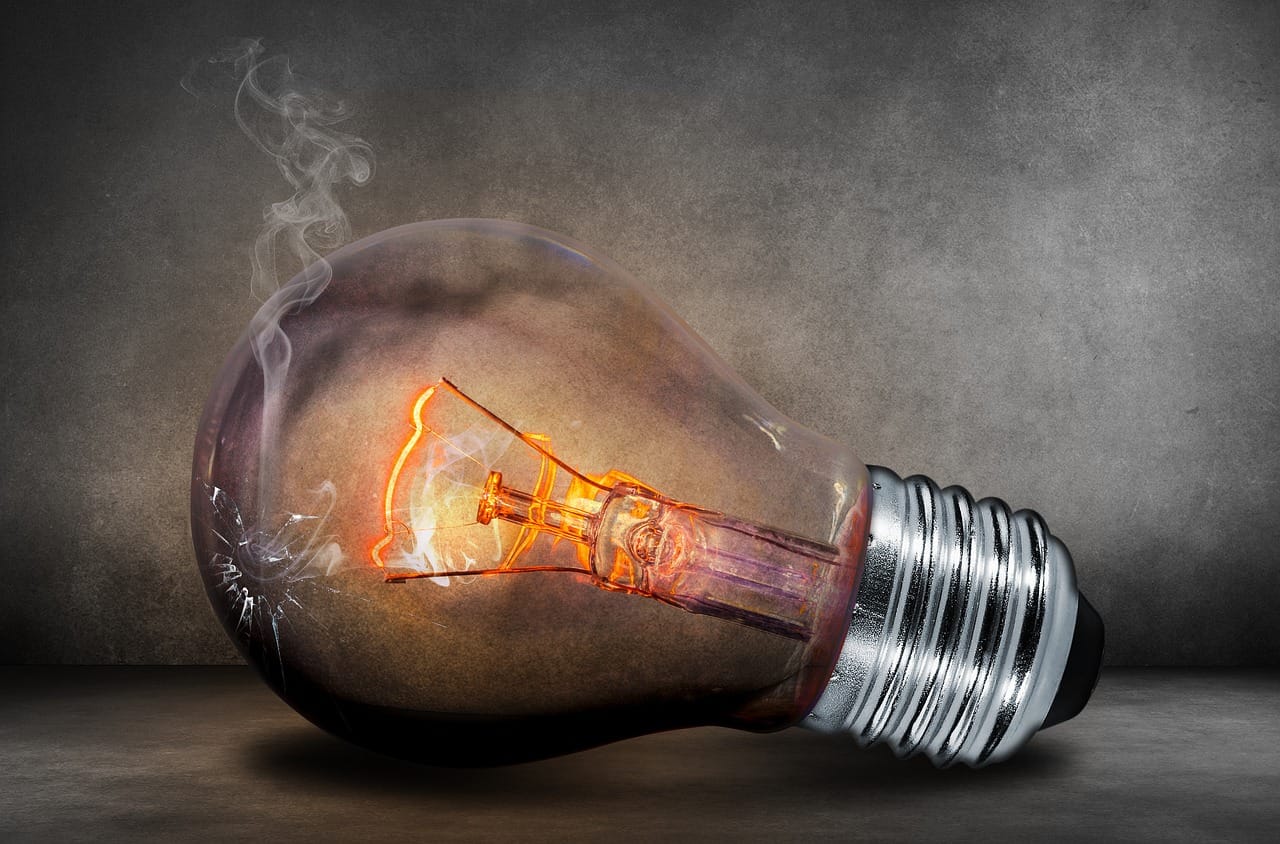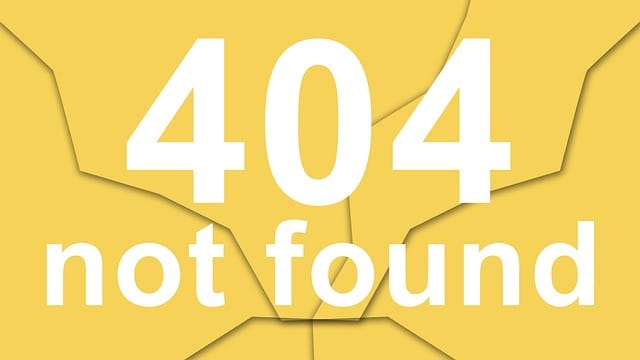Episode Transcript
[00:00:00] Speaker A: Foreign.
[00:00:10] Speaker B: Welcome to Critical Defiance, the podcast that doesn't just scratch the surface. We dive headfirst into the glitter strewn curiosity complicated heart of American politics and culture. I'm Niels.
[00:00:22] Speaker C: I'm Bill.
And with us, as always, is the one, the only bobby socks ready to speak.
[00:00:30] Speaker A: Spilled the tea and it's piping hot.
[00:00:34] Speaker B: It's June, darlings, and the vibe is electric.
The sun's out, the music's pumping and the rainbow flags are absolutely everywhere. It's Pride month and on the surface it looks like one giant fabulous corporate sponsored fiesta.
But here at Critical Defiance, we're asking the tougher question.
Has the rebellion been bedazzled into submission?
Are we trading our protest signs for gift cards now that we're sponsored by Megacorp X?
[00:01:05] Speaker A: Exactly, Nils. We've seen the evolution from fierce street protests born of riots to bank lobbies draped in rainbows.
Today we're going to sashay through that journey. We'll trace Pride's raw, defiant roots as a protest, analyze the explosion of corporate involvement and debate whether this mainstreaming is a genuine leap forward for liberation or or just a slick corporate hijacking of a vital movement.
[00:01:35] Speaker C: We'll pull back the curtain on Stonewall, track the rise of pink money and the sometimes uncomfortable reality of rainbow capitalism, and weigh the glittery pros and sticky cons of corporate visibility.
Ultimately, we're asking, what does genuine allyship truly look like in 2025?
Because the fight for liberation ain't just about what you buy in June, honey child.
It's about what you demand all year round.
[00:02:13] Speaker B: So silence your corporate overlords for a moment, grab your most fabulous non corporate beverage and join us as we dive into how we've gone from riot gear to rainbow cheer.
[00:02:25] Speaker A: As always, you can head over to Critical Defiance and get the read on us.
Don't forget to donate to your favorite queers and ally in a bunker by tossing canned goods down the chute or heading over to buymeacoffee.com critical defiance.
No one ever said this much fabulous is free. And come celebrate Pride with us. We're going to have a great time and we have a lot of topics stacked up to talk about.
[00:02:54] Speaker B: Oh, it's gonna be a great month.
[00:02:55] Speaker A: Yeah, talk about tea, man, I'm spilling all of it.
[00:03:00] Speaker B: So let's dive into the news recap for this week. Bobby socks. We got one that I think you wanted to pull out of your hat there and talk about.
[00:03:07] Speaker A: Yeah. So as we'll later tell you about Stonewall and how Pride started and how we got to corporate rainbows.
Thanks to President Orange, corporate donors of New York City's annual Pride festivals are starting to pull out, pull their support away, citing economic uncertainty and fear of retribution from the Trump administration.
[00:03:33] Speaker B: And, you know, these are straight people because they think pulling out will work.
[00:03:37] Speaker A: Oh, damn, that was a good one. That was a good one.
Corporations pulling their money out of Pride is a big issue. I mean, one. It shows us all immediately who actually cares about us and who's actually putting their dollars toward us. But the. The first fear that comes to my mind with this is corporate donations. Corporate sponsorships are things that help Pride have private security, which is really important to the values of Pride. As Stonewall was a riot against police hunting down queers, they were purposely going after them to fuck with them.
So New York City Pride not being able to fund their own private security from loss of money could mean that we have cops at Pride.
Nearly one in four of the corporate donors of New York City's annual Pride festivities have pulled support for 2025, citing economic uncertainty and fear of retribution from the Trump administration.
[00:04:53] Speaker B: It's literally they're, you know, not so much publicly, but they're quietly telling reporters, and an investigative reporters in particular, that, yeah, they're afraid of retribution from the Trump administration because look at what he's done with trans people so far.
[00:05:06] Speaker C: Well, I can think of no prior administration in this nation's history, Republican or Democrat, that has had this much undue influence over corporate behavior, corporate anything.
So it's really scary as hell.
[00:05:28] Speaker A: Yeah, it is. And so some of the big players that have taken sponsorship away from New York City Pride are Citi, MasterCard, Nissan, PepsiCo, and PricewaterhouseCoopers. They all drastically reduced their sponsorship of Heritage Pride this year.
[00:05:46] Speaker B: So the loss has been massive. And it's prompted organizers to launch a grassroots fundraising campaign. They're hoping to raise about 25 grand by the end of June to keep Pride events actually free and accessible to everyone. And a lot goes on beyond the parade. Like, people don't realize how many community grants that they provide to small businesses throughout the city that are LGBTQ plus owned. Yeah, that's a big function of this organization year round. It's not just one day or one party.
[00:06:14] Speaker A: And we talk about voting with your dollar. And this is like the opposite. This is like we're watching more and more how money seems to be the be all, end all. And they keep coming after the queers. And now they're pulling funding too.
[00:06:32] Speaker C: You want to know what?
Forgive my cynicism here or don't. I really don't care.
If you say that you support a particular cause and then run for cover when you learn that there might be actual real world consequences for that support, then you are not a true ally.
You simply jumped aboard for the ride, but only for as long as you stood to gain something from that ride.
[00:07:01] Speaker A: Yeah, and we'll go off about performative allyship in this episode too, because target.
[00:07:09] Speaker B: Much so the other end of the spectrum, we caught a weird story this week about the FBI. The FBI wants access to encrypted iPhone and Android data, and so does Europe.
But the FBI has confirmed that it wants what it calls lawful access to your fully encrypted data, which would include end to end encrypted messages and iPhone and Android backups.
Their words. Access to digital evidence and online threat information is critical for law enforcement to stop threats, arrest criminals, and protect victims.
The prohibition against surveillance based on your sexual orientation, gender identity or other identities is now gone. And now you want to take away my privacy too.
So this is one that we actually have to get loud about because this is another scenario where they just want access to your private life to make theirs easier.
[00:08:01] Speaker A: And I've got a. Sorry, I'm going to cut you both off here if we take a moment to remember some of the news from last week's episode regarding habeas corpus.
And now you want full access to everyone's information for law enforcement to stop threats.
What's a threat?
[00:08:27] Speaker C: Now hang on, there's another nugget to this story that just turned up in my news feed this morning.
[00:08:33] Speaker B: Okay.
[00:08:35] Speaker C: Are you familiar with the corporation Palantir?
[00:08:38] Speaker B: Oh, yes, I am.
[00:08:40] Speaker A: No.
[00:08:42] Speaker C: Palantir is now working with the federal government to interweave all the information from all the different agencies into a single comprehensive database that will provide a dossier.
[00:08:57] Speaker B: On every American citizen.
Did we sign up for this?
[00:09:01] Speaker C: How many this.
[00:09:03] Speaker A: How many times does it have to be said, since the book was written in 1948, that George Orwell's 1984 is not a guide of what to do, but a guide of what not to do?
[00:09:19] Speaker B: Yeah, we're going to go deeper into this stuff in our next Privacy episode, which is going to be more focused on the creepy stuff that these private intelligence firms do. But you've got these companies like Palantir and a few others that are really, really creeping past what's acceptable.
[00:09:35] Speaker C: And let's not forget that decades ago, during the 48 year directorship of the infamous J. Edgar Hoover, the FBI became One of the most oppressive, repressive, and arguably corrupt organizations in the US justice system.
Sorry.
Not sorry.
But I don't trust either Cash Patel or Dan Bongino to adhere to any higher moral standard.
[00:10:04] Speaker B: Amen. These are not people that I want to trust an entire nation's private data to. The answer to that one, for me is hell, no. That's like saying that we need keys to everyone's homes just in case there's a crime.
[00:10:17] Speaker A: It's turned into a fucking Black Mirror episode.
[00:10:21] Speaker B: It really is. And we got to do something as a people before this gets out of hand. It's beyond anything that I expected.
[00:10:27] Speaker C: And at this point, in terms of.
[00:10:29] Speaker B: The angles and directions they've taken, and.
[00:10:31] Speaker A: With this surveillance, basically, and getting everybody's information, this is everyone. This isn't just the queer.
[00:10:38] Speaker B: This is more Minority Report women.
[00:10:40] Speaker A: This is.
[00:10:41] Speaker C: And there have been a significant number of Palantir employees who have resigned due to their objection to this program. And.
[00:10:50] Speaker A: Hey, Critical Defiance listeners, it's Bobby Socks here.
If you're tired of the noise, the spin, and the endless scroll of misinformation, then you know why we do what we do. We're here to cut through it all, to give you the tools to think for yourself and to keep the truth from getting buried. And we can only do that with your support.
So if you believe in challenging the status quo and in preserving American freedom, please consider becoming a monthly subscriber at criticaldefiance.com or making a donation at buymeacoffee.com Critical Defiance. Every contribution, big or small, helps us stay truly independent and keep the conversations flowing.
Thank you.
[00:11:36] Speaker B: Okay, folks, welcome back to Critical Defiance, the podcast where we chew on the gristle of American politics and culture so you don't have to. Well, not as much, anyway. I'm Niels.
[00:11:47] Speaker A: And I'm Bobby Socks. And with me is Bill.
[00:11:51] Speaker C: Still good to be here. Niels, please pass the grizzle.
[00:11:55] Speaker B: Today, we're seeking our teeth into Pride Month.
The glitter's out, the flags are flying, and the corporate sponsorships are, shall we say, robust.
But it's not just the parades and parties. We're asking a harder question today. Has the rebellion been bought? Perhaps it's time to question if we've traded our Molotovs for mimosas sponsored by Megacorp X.
[00:12:17] Speaker A: Exactly, Nils. Because while it's great to see rainbows everywhere, we need to explore the true history of pride as a protest track. The rapid rise of corporate involvement, and debate whether this mainstreaming is a genuine sign of progress or a clever hijacking of a vital movement?
Are rainbow flags now flying on bank lobbies instead of barricades for the right reasons?
Or are we seeing a subtle pink wash where true liberation gets diluted by.
[00:12:48] Speaker C: Market driven acceptance, as they told us 50 years ago during the Watergate scandal?
Follow the money.
To do that, we'll dig deep into the fiery, forgotten origins of the Stonewall uprising, chart the arrival of those all important pink dollars, weigh the complex pros and cons of corporate visibility because it's not entirely black and white.
And crucially, ask what genuine allyship really looks like in 2025.
It's not just about wearing the T shirt, folks.
It's about whose pockets are being lined, what their genuine motivations are, and whose fights are being ignored.
[00:13:43] Speaker B: Buckle up, critical thinkers. Let's unravel this rainbow.
So what do you guys think of this, this shift that we've had over the last few years from Pride being a gay event to Pride being sort of Disneyfied by mega corporations? It's. It's a little weird for me. Like, I. I wasn't around for Stonewall, but I've been around for long enough to remember when Pride was a fight to be at and a fight to hold and a fight to have.
[00:14:08] Speaker A: Now it's a whole different party from my experience.
Pride was always a parade growing up. Since I was a kid, Pride has been a celebration.
[00:14:21] Speaker B: Right.
[00:14:22] Speaker A: You had to learn the history and understand the roots. And that's a big thing with the younger generation of queers is fortunately, not enough of them are doing their homework and learning why they get to go paint their body and glitter and run around on the street.
It's hurting us, making us forget our history and not look into our history and just assume Pride as a celebration and forget the pain and fight and strife that went on to get there. But at the same time, it's heartwarming when you see kids in public during Pride Month feeling accepted because their flag is being flown.
Especially in the last few years, we have been starting to see more than just our generic Pride flag. We're seeing Trans Pride, we're seeing non binary lesbian.
So it has its pros and cons right now.
[00:15:19] Speaker B: Yeah, it's definitely growing, but it's grown in some weird ways.
[00:15:22] Speaker A: Yeah.
[00:15:22] Speaker C: Don't lose perspective. Don't lose perspective, Bobby. Just 20 or 25 years before you were born, when HIV was.
I want to call it an epidemic because among the gay community, it was.
There were politicians trying to suppress funds.
[00:15:44] Speaker A: Yeah.
[00:15:45] Speaker C: For HIV research.
The Logic, I assume, being just let them die off.
[00:15:51] Speaker B: It wasn't an easy history, and it wasn't an easy fight to get to the party that we're having today. And I think, you know, why don't we talk about that, Bobby?
[00:16:00] Speaker A: So let's set the scene. Because before the branded floats and the corporate merch, pride was a riot, literally.
Take us back to the origins, Bill, that sweltering June night in 1969 at the Stonewall Inn.
What was the atmosphere like? Who were the key players? Paint us a picture beyond the sanitized versions we often hear.
[00:16:27] Speaker C: Why me? Because I'm the old one.
All right. It then.
Back in the day, being openly gay or, God forbid, trans was still a criminal offense.
And police raids on gay bars were not only routine and relentless, but brutal and downright humiliating.
The Stonewall Inn in Greenwich Village, it was basically nothing more than a hole in the wall bar run by the mafia that happened to cater to a marginalized community.
And not necessarily by design, but by sheer demographics, it became their queer sanctuary.
But the night of June 28, 1969, brought together a perfect storm of aggravators.
Society writ large was on edge with civil rights protests, anti war protests, counterculture protests, pervasive anti establishment sentiment.
Don't forget, it had been scarcely a year since both Martin Luther King, Jr. And Bobby Kennedy had been assassinated.
New York City was reeling in a heat wave that only exacerbated the tensions that night. Because the Stonewall's air conditioning was no match for the oppressive heat and humidity, many patrons were mingling outside in hopes of cooling off.
But instead of relief, they were confronted with yet another raid.
And this time, something just happened. Snapped.
Collectively, they had simply had enough.
But for the legendary courage of Marsha P. Johnson, a trans woman of color who stood defiantly, brick in hand, between the police and the door, the whole affair might very well have ended as just another in a long and degrading history of such raids.
She arrived at the Stonewall a few moments after the disturbance had already begun.
But rather than turn around and retreat back to the safety of home, she placed herself squarely on the front lines.
Courage can be contagious.
The crowd outside looked on, first in disbelief, then amazement, and then in literally riotous support as Marcia and a companion, Sylvia Ramirez, stood their ground and faced down the nypd.
The few random shot glasses that had been hurled prior to her arrival suddenly became a fusillade, not only of glasses, but bottles and bricks and stones and trash cans.
Sheer exhaustion, humiliation and rage.
The product of decades of degradation had reached the breaking point.
In the space of an instant, it had been transmogrified from the call of shame to the fuel of defiance.
[00:20:04] Speaker A: And this is that bad edge of pride being what it is. Today we have kids, teenagers, people my age who are queer, who don't know the name Marsha P. Johnson.
And that's a problem, not knowing where we came from, how we got here.
Pride.
While it is for us to celebrate and to be proud, we're celebrating because of Marsha and Sylvia and so many.
[00:20:46] Speaker B: Other people who fought. Just like it really puts into perspective how far removed the first sparks of this thing were from today's corporate sponsored celebrations, you know?
[00:20:58] Speaker A: Yeah.
And while, you know, every next queer generation deserves to go out and feel seen and feel accepted, we also need to keep the history alive.
Especially while we have the current administration working to make sure that name is erased from history.
We spoke on an earlier episode about trans people being taken out of the.
[00:21:28] Speaker B: The National Park Services.
Trans people were removed not that long ago. You know, during Trump's massive DEI purge of websites and online information. They were removed entirely from the Stonewall Memorial National Park Service page. That's a little mind numbing. You've got an event that didn't just include trans people. It in some ways centered on them for certain moments in the action. Yeah, and yet they're going to call it an LGB monument because they can't handle the T and the Q, let alone the plus. Come on, people, what the have we come to? These people were there. You can't erase them. You can't tell them to go away. Their history is real. It's solid, it's factual. It does not die just because you tried to white out over it.
[00:22:10] Speaker C: If we pretend it doesn't exist, then we won't have to look at it. Yeah, we just can't bear to look at it.
[00:22:18] Speaker A: That seems to be a theme of this country in general. Whole make America great again is implying that America never did anything bad.
[00:22:26] Speaker B: Yeah.
[00:22:27] Speaker C: And it's also implying that life was wonderful in the 50s.
Yeah, it was. One can only imagine explaining to a Stonewall rioter, Marsha P. Johnson, for instance, dodging bottles and fists that one day corporations might sell rainbow flecked dog food in their honor.
Try explaining that to Marsha and Sylvia that shirts adorned with rainbows and a pride rack in Target are the reward for their fearless defiance.
I'm pretty sure they laugh, however briefly, before they cried.
[00:23:11] Speaker A: They'd probably have a strong reaction, to put it mildly. Even Throw another trash can.
[00:23:16] Speaker B: And that reaction would be entirely understandable. It perfectly highlights the jarring shift we're dissecting today from Molotovs to, well, I guess gourmet dog treats.
So how did we get from actual riots and revolutionary fervor to rainbow capitalism? When did corporations start seeing pride not just as a social movement, but as a market opportunity? And why did they decide to jump on the bandwagon?
[00:23:41] Speaker C: Let me answer at least that last question.
It's because history has clearly shown us that they will brazenly chase down every last available dollar they can sniff out.
In the affluent 50s, they quoted housewives. In the 60s, the they aggressively targeted children through television.
In the 70s and 80s, the new working woman became their focus.
If anybody thought that simply being gay was going to save them from becoming a market opportunity, then they haven't been paying attention to capitalism.
[00:24:19] Speaker A: It really comes down to what marketers call pink money.
The perceived purchasing power and loyalty of the LGBTQ community.
Companies realized, hey, these folks have disposable income and they're incredibly loyal to brands that support them.
It wasn't a sudden flood. It was a rising tide.
From the very subtle, almost gay, vague ads of the 80s and 90s where companies hinted at inclusivity without explicitly saying gay out of fear of backlash, also known as queer baiting today, to the explicit rainbow branding we see everywhere.
[00:25:00] Speaker B: Pink money is definitely a thing in marketers minds. I've talked about it with my peers in a couple of the firms that I've worked with, and there's this idea out there among the CIS hetero crowd that because we're not going to have children, therefore we won't have most of the core life expenses that they do, and we will have massive amounts of.
[00:25:20] Speaker A: Disposable income, which is considering how many queer individuals, especially as children, end up losing their family and homes and how most of us, you know, are not better off. We may not have kids, but a good amount of us don't have homes either.
[00:25:41] Speaker B: Yeah, not in today's market. That's not easy, you know, and in the beginning, these companies were really cautious. And then as social acceptance of us grew, so did the corporate presence, which is kind of how you can tell that it's not really genuine.
They didn't break any barriers here. They waited on society. In most cases.
[00:26:02] Speaker C: For all of its faults, capitalism is incredibly inclusive.
Show them you've got some disposable income you might be willing to part with, and suddenly you're welcome at their party.
[00:26:17] Speaker A: Yeah, and it really has risen. The whole brand image thing of it's June and it's like the clock strikes midnight. All these companies now have rainbow logos on Facebook, on Twitter, on Instagram, and, you know, June, the stroke. Midnight, June 30th.
Water, gays.
Political queer says what?
[00:26:43] Speaker C: LGB. What are those letters?
[00:26:46] Speaker A: The arguments for this corporate involvement often center on points we hear constantly. Increased visibility and normalization.
But we have to ask, what kind of visibility is this?
Is it a sanitized, marketable version of queerness that avoids anything too edgy or politically demanding?
Are they truly normalizing all queer identities or just the ones that fit a tidy demographic? The clean cut, cisgendered, often white gay couple that's a safe bet for a commercial?
The trans person of color fighting for their life, not so much.
[00:27:29] Speaker C: And then there's the argument.
But they provide funding for events that might not otherwise happen.
And yes, absolutely, many smaller prides, especially in small, less wealthy communities, rely on corporate sponsorship.
But at what cost to the original message?
Does the price of that float mean toning down your protest signs?
Does it mean ignoring the demands of the most vulnerable in the community because they might offend a sponsor's sensibilities?
Is diluting the message for dollars doing the entire community a disservice?
[00:28:14] Speaker B: These are good questions, Bill, and they're all ones that we need to ask ourselves when we look at these corporations and make our own determination as to whether or not they really are an ally, whether or not there's someone that we feel safe with.
The final common argument is that this stuff shows support for LGBTQ + employees.
And again, that's a commendable idea. What the question is, does this support extend beyond June? Does it permeate all their policies from supply chains to political donations? Or is it just a surface level thing, A rainbow filtered profile pic for 30 days like Bobby Sock spoke about before?
Are they truly supporting the messy, complicated, sometimes strange humans still fighting for basic dignity, or just a simplified, palatable image of them that they can slap on a coffee cup?
[00:29:04] Speaker C: These are the critical questions. Is the visibility truly for everyone or just for those parts of the community they find camera ready often a watered down stereotype of successful gay men and lesbians, the marketable segments, While others, particularly QTBI, PoC and trans individuals, continue to fight for basic rights, recognition and dignity?
You know, something beyond a discounted latte during Pride Month?
It's the difference between a performative ally and a true advocate.
[00:29:47] Speaker B: You know, I have to call one out here, because if we're going to talk about performative allies. Bobby socks. What is Target doing at this point?
What is wrong with these people?
You're going to have a Pride collection after you've ended dei.
[00:30:02] Speaker A: I. I'm going to.
[00:30:03] Speaker B: What are you talking.
[00:30:04] Speaker A: All right, I'm going to go off. I did have just one comment to end rollback to add to Bill talking about how we see the watered down, stereotypical successful white gay. Right one way. It's always easy for me to tell if a company actually supports Pride is if or I see their online and some of the models are disabled in any way because we're disabled people. God, talk about never getting recognition.
Just had to add that in there because.
Because the world needs to know about queer disabled people. Because these bedazzle the out of those canes, man.
They're beautiful.
So anyway, Target, the fucking audacity, the sheer fucking audacity.
The queers as a whole, we're not dumb. We see what you're doing.
We see right through you. You put out a Pride line.
[00:31:11] Speaker B: The two faced thing I've seen what.
[00:31:13] Speaker A: Pisses me off even more is, is that when you go to the Target site and look at their Pride line that they just put out, they also have a tab for queer owned or. I'm sorry, I think it says LGBTQ plus owned brands.
[00:31:28] Speaker B: Yeah, yeah, it's straight.
[00:31:30] Speaker C: Huh?
[00:31:31] Speaker A: Sachet. Oh, wait, there's.
[00:31:33] Speaker C: There's that word again.
[00:31:34] Speaker B: There it is.
[00:31:36] Speaker C: So let's talk about the criticisms, the neutering part.
Should the dollars be making the decisions?
How does corporate involvement change the very nature of pride?
Shifting it from a protest to in some cases, what feels like a corporate sponsored block party.
[00:31:57] Speaker A: The biggest one is the dilution of political messaging. When you have a giant bank sponsoring the parade, are you going to hear the chants against predatory lending practices?
Probably not.
The focus shifts from liberation and justice to consumption, the holy grail of capitalism and a celebration that's increasingly apolitical.
Hard hitting political demands like protections for trans youth or addressing the never ending rise in violence against black trans women.
They can get sidelined for fear of offending those big shiny sponsors.
When the message becomes buy our stuff, the real message gets lost in the noise.
[00:32:47] Speaker B: And then there's this absolutely rampant problem of performative allyship. Right, like this is where it gets really thorny. We see companies sporting rainbow logos in June, but their actions year round, like donations to anti LGBTQ politicians or discriminatory internal policies within their own companies, tell a very different, much uglier story.
It's the equivalent of Wearing a Save the Whales T shirt while actively funding whaling ships or like taking a vacation.
[00:33:17] Speaker A: On one or while pulling back DEI and then putting out pride merch at Target.
I, I, that one's such a hard one for me to get over because just, what, what?
[00:33:30] Speaker B: And you know, what have you done?
What did you think?
[00:33:33] Speaker A: And you know, the performative allyship doesn't even end with the corporations.
Corporations let out performative allyship to straight people in a very weird way.
Places like Pride that, you know, are supposed to be safe spaces.
God, I hate to call them out, man, but it's the straight white girls.
[00:33:57] Speaker B: Yeah, we're not, we're not here for the party, honey. This is about our lives. This is about our past. This is our history. This is about our fight. This is not about you.
[00:34:04] Speaker A: You showed up to get trash, not.
[00:34:06] Speaker B: Your Mardi Gras girl.
[00:34:08] Speaker A: You want to have fun. You want to go do something. You want to get trash at a parade. There are other things, man, you don't need Straight Pride Month. You guys got events that you can feel safe at year round.
Drag bars are just flooded with, you know, straight people who think we're an accessory and, oh, look at my gay friend. Like, you know, you're taking away our sanctuaries in a way.
[00:34:34] Speaker C: Corporate pride can often feel very centered on white cisgender, affluent individuals who gets left out of this branded version of pride?
We're talking qtbi Pocket disabled queer folks, those with less purchasing power who can't afford the ticketed events or even just the merch.
It creates a hierarchy within the very movement meant to liberate everyone, really, and it really does.
[00:35:05] Speaker B: The merch alone costs money, and being a part of any movement costs money. But being gay comes with a price tag, like, what the fuck?
So are there any examples of pride done right by corporations? Or is it inherently problematic when profit motives intersect with liberation? Like, what does genuine corporate allyship look like in practice? Beyond the rainbow. Watch social media profile pictures.
[00:35:30] Speaker A: I mean, I don't think anybody is asking for a corporation to keep their, like, rainbow logos up year round because that's not what we want. That's performative. I remember before Target pulled back DEI and actually hosted queer owned brands, we're talking, you know, about not giving money to, like, conversion camps or politicians that want there to only be two genders in the country, you know, or perhaps.
[00:36:01] Speaker B: That Swedish furniture company and housewares manufacturer that treats trans healthcare exactly like any other fucking person, just like we all should.
[00:36:11] Speaker C: Yeah, you're some kind of radical they have great meatballs. Leave it at that.
Listen, here's the bottom line. If a corporation is given to the big ones, that means the biggest market segments in June.
But they're ignoring both them and the little ones the rest of the year. They're full of shit. Genuinely inclusive in internal policies that extend to all LGBTQ+ identities, not just the.
[00:36:41] Speaker A: Palatable ones that also active lobbying for LGBTQ plus rights even when it's unpopular or costs them money.
[00:36:50] Speaker C: Right. And this is the glaring example because for the overwhelming majority of corporations, nothing supersedes the bottom line if it really.
[00:37:02] Speaker A: Comes down to consistency. And morals, I feel like is a great two things to look at when trying to tell if a company is being performative or genuine.
Are there movements pushing back against this commercialization and trying to reclaim Pride's radical spirit? Because if corporate pride isn't serving anyone, who's picking up the slack?
Bill, tell me about grassroots alternatives.
[00:37:30] Speaker C: The Queer Liberation March in New York city began in 2019.
They shun all corporate sponsorship and everyone in the community.
Whether you're L or G or B or T or B or I or poc, you're invited and welcome to be a part of this protest. It's a Protestant counter to corporate pride.
[00:37:59] Speaker A: Yeah, that's. That's huge. And you could always look for smaller activist led prides. There are dyke marches, trans marches, Black Pride events that prioritize community and protest over sponsorship. These marches, parades. I forgot the word. I kept one to say protest. Because pride's always been a protest.
But yeah, look for those little ones. Look for those or start your own.
Find the queer people in your community. Get them all together. Do something.
[00:38:33] Speaker C: We're.
Make these little, little local community groups and local activists your focus.
They're the people doing the real work.
So has Pride been neutered?
Perhaps not entirely.
But it's undeniable that its claws have been somewhat clipped by the allure of corporate cash and mainstream, though often superficial acceptance.
The roaring lion has been asked to purr for a sponsorship deal.
[00:39:07] Speaker A: The challenge for us and for our listeners is to look beyond the rainbow wash storefronts and the limited edition sparkly sneakers.
It's about asking the hard questions about who truly benefits, whose voices are amplified versus silenced, and whether the progress is genuinely for everyone or just a profitable demographic.
[00:39:33] Speaker B: This is where cultivating critical thinking is paramount. We can celebrate the visibility, absolutely. But we also need to demand more. We encourage you to support queer owned businesses, to demand more from corporations than just a rainbow logo for 30 days and crucially to research where these companies money really goes.
Use tools like OpenSecrets.org to see who they're donating to. Don't just swipe your card, swipe for justice. Remember, the first Pride was a riot, not a shopping spree.
Stay defiant and consider how we can all use our influence, even our wallets, as tools for meaningful change.
[00:40:14] Speaker A: That was a fantastic, if not a bit disheartening, dive into the commercialization of pride.
Thanks for joining us. For From Riot Gear to Rainbow Gear, has Pride been neutered by capitalism?
[00:40:27] Speaker B: It's a conversation we need to keep having, keep going, especially as we see more and more corporations waving the rainbow flag without necessarily walking the walk.
[00:40:35] Speaker C: And speaking of walking the walk, or more accurately, trying to walk the walk when someone's constantly putting obstacles in your path.
Next week, we're tackling something that's becoming alarmingly prevalent.
[00:40:52] Speaker A: That's right, folks. We're going to decode what we're calling the new Moral Panic, Decoding the Assault on Trans Existence.
[00:41:02] Speaker B: We'll be looking at the coordinated efforts across media, law, legislation, and even grassroots movements that are creating an increasingly hostile environment for transgender individuals in America.
[00:41:13] Speaker C: From bathroom bills to sports bands to the frightening rhetoric we are hearing from certain political personalities, we'll pull back the curtain on how these narratives are constructed and what their true purpose is.
[00:41:31] Speaker A: We'll delve into the data and real world impact and how this particular brand of fear mongering is a direct threat to the freedom and autonomy of all Americans.
[00:41:44] Speaker B: It's a heavy topic, but an essential one for understanding the current landscape of American freedom and who gets to participate in it.
[00:41:52] Speaker C: Join us next week for the New Moral Panic, Decoding the Assault on Trans Existence.
You won't want to miss it.
[00:42:04] Speaker A: Until then, stay critical, stay defiant, and keep those rainbow flags flying, even if they're not always corporate sponsored.






